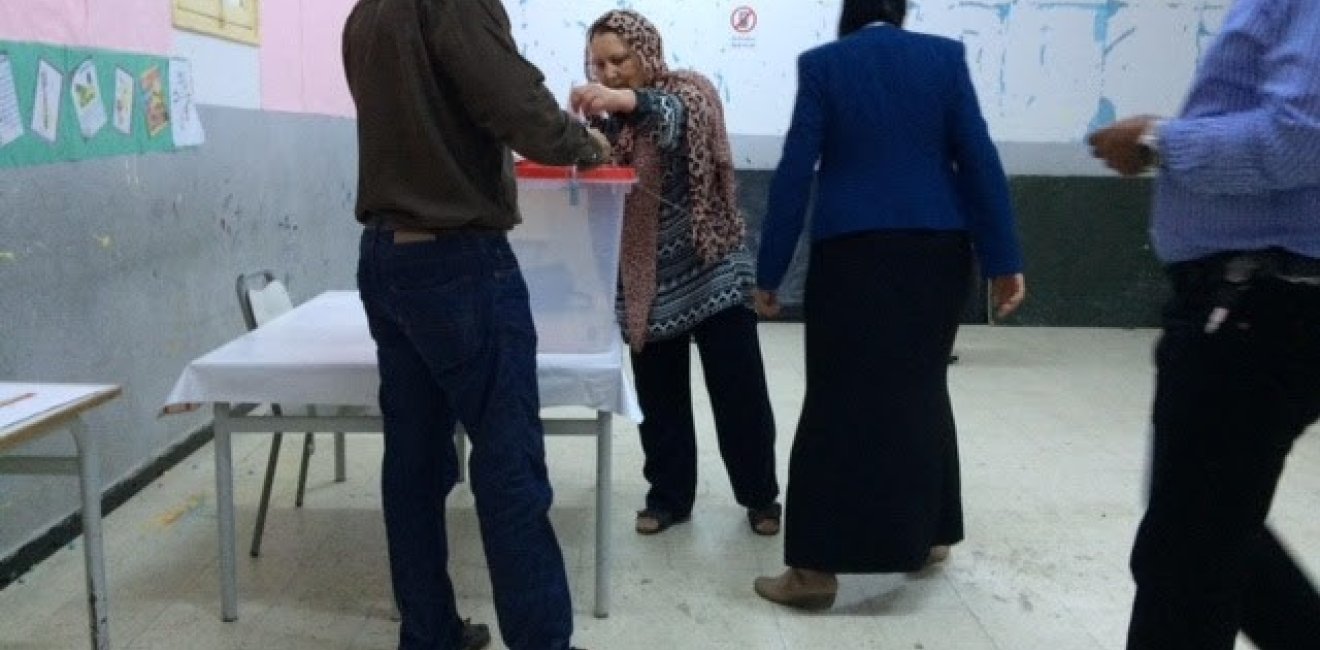In Tunisia’s October 2024 elections, President Kais Saied achieved a decisive victory, tightening his grip on political institutions in an environment marked by restricted oversight and limited competition. This consolidation of power reflects a stark shift away from the democratic ideals that emerged after the Arab Spring, signaling a return to centralized and authoritarian governance. Key to this transformation is Saied’s alignment with global powers like China and Russia, distancing Tunisia from traditional Western partnerships and prioritizing democratic reform. This pivot allows Saied to secure economic support while bypassing pressures for democratization. These shifts represent a profound change in Tunisia’s trajectory, raising concerns over its democratic integrity, civic trust, and institutional legitimacy, as well as its long-term stability both domestically and internationally.
Consolidation of power
Saied’s overwhelming electoral victory, with an improbable 90.69% of the vote, appears less an endorsement from the populace and more a result of stringent controls that shaped the election environment. Low voter turnout—only 28.8% of nearly 10 million eligible voters —signals substantial public detachment from a process widely perceived as uncompetitive and symbolic. The Independent High Authority for Elections (ISIE), once an independent body safeguarding democratic processes, now operates under Saied’s influence and control. Staffed with loyalists and enforcers of restrictive criteria, ISIE allowed limited participation by rejecting 14 out of 17 candidates, disqualifying many opposition figures, and ignoring court orders for reinstatements while enforcing regulations that stifled opposition candidates, who faced restricted campaign access and stringent signature requirements. Additionally, ISIE permitted select international observers, including Russia's Election Commission, but excluded major groups like the EU and Tunisian organizations I Watch and Mourakiboun for the first time, citing concerns over “foreign funding.” By sidelining prominent opponents and drastically reducing their capacity to participate meaningfully, Saied has, in effect, limited political competition and reinforced a perception of electoral manipulation among the public.
Beyond elections, Saied’s control extends to dismantling democratic institutions that once served as checks on executive power. Invoking a contested interpretation of Article 80 of the 2014 constitution in July 2021, he dissolved parliament, suspended the constitution, and began ruling by decree, marking a dramatic shift from democratic governance to authoritarian rule. In February 2022, he took further steps by dissolving the High Judicial Council, allowing him to replace judges with loyalists and dismiss those perceived as obstacles to his agenda, undermining the judiciary’s independence, once a key safeguard of democratic principles, reducing its role to a tool for consolidating power. Without an independent judiciary or oversight body, Saied has created a system vulnerable to favoritism, where executive decisions face minimal accountability and legal standards risk becoming subservient to political loyalty.
To reinforce his authority, Saied has systematically repressed opposition and imposed restrictions on the media and civil society. Central to this strategy is Decree 2022-54, which criminalizes disseminating what the regime deems “fake news.” The law grants the government broad powers to detain those who challenge or criticize the regime, effectively silencing opposition voices. High-profile arrests such as Rached Ghannouchi, leader of the opposition Ennahda Party, and Abir Moussi of the Free Destourian Party (PDL) underscore Saied’s determination to suppress dissent. Both figures, vocal critics of Saied’s government, were detained in what observers see as an orchestrated effort to eliminate political opponents and discourage others from speaking out.
Saied’s crackdown extends to media organizations and civil society, further limiting channels for public discourse. In 2023, Noureddine Boutar, head of Mosaïque FM, Tunisia’s largest private radio station, was detained, signaling Saied’s increasing control over the press and restricting independent media. This suppression also targets civil society, focusing on the Tunisian General Labor Union (UGTT), a historically influential organization. Following strikes and protests, UGTT leaders were arrested, and the organization’s ability to gather and organize publicly was curtailed. By restricting UGTT’s traditional role as a mediator in political crises, Saied has weakened its influence, discouraging other civil groups from challenging government policies. With civil society increasingly constrained, public discourse is stifled, civic engagement declines, and political participation wanes. This environment allows Saied to consolidate power with minimal organized opposition, as individuals and groups become wary of state retribution for challenging the government.
Saied’s initial rise to power was fueled by a populist message that presented him as a defender of Tunisia’s sovereignty and an anti-establishment figure poised to disrupt the elite.
Economic discontent and populism
Saied’s initial rise to power was fueled by a populist message that presented him as a defender of Tunisia’s sovereignty and an anti-establishment figure poised to disrupt the elite. His rhetoric, particularly against Western-backed economic reforms, resonated with a public frustrated by years of economic mismanagement, high unemployment, and the influence of elite networks. Despite promises to address economic inequality and improve social services, Tunisia’s economic situation has only worsened under Saied’s rule. By the close of 2023, the country grappled with a public debt reaching $42.5 billion, youth unemployment exceeding 30%, and stalled negotiations with the IMF. Saied’s reluctance to implement austerity measures, while possibly avoiding immediate backlash, has delayed essential reforms and further complicated Tunisia’s economic outlook.
This economic instability underscores a widening gap between Saied’s populist promises and the current reality for Tunisian citizens. Disillusionment over unfulfilled promises, especially among youth and economically marginalized communities, grows more acute as public needs go unmet. The deteriorating economic conditions not only highlight Saied’s inability to address structural issues but also increase the risk of civic unrest as frustration mounts. With limited avenues for expressing grievances and diminishing trust in the government’s willingness to enact real change, public patience is wearing thin. Saied’s once-strong anti-establishment appeal now contrasts sharply with a populace that faces growing economic challenges and diminishing means for securing a stable future.
While Saied’s centralization of authority risks long-term instability for Tunisia, using the military to enforce executive decisions marks an unprecedented shift in Tunisia’s governance. Under Ben Ali, the military maintained a largely neutral stance, with security forces and police acting as the primary enforcers of state authority. However, the military’s involvement in suspending parliament in 2021 under Saied signaled a pivotal departure from this neutrality, suggesting a redefined role as a political enforcer.
By empowering the military to support executive authority, Saied has shifted Tunisia toward a security-centered governance model where the military is no longer solely a protector of national interests but an indispensable ally in consolidating power. This evolution risks blurring the lines between military and civilian spheres, potentially entrenching military influence in governance that could prove difficult to reverse. If public dissent or opposition movements intensify, the regime may increasingly rely on the military to maintain control. Without robust institutional checks—such as an independent judiciary or legislative oversight—Tunisia’s political framework could heavily rely on military-backed executive dominance, diverging sharply from the democratic principles the country once pursued.
Geopolitical realignments
Under Saied’s rule, Tunisia has shifted its alliances from traditional Western partners toward powers like China and Russia. While certain partnerships with the West—such as migration management cooperation with Italy—remain intact, these relationships are increasingly strained by Western concerns over Tunisia’s democratic regression. Saied’s rejection of Western "interference" has opened the door to deeper ties with China and Russia, which support Tunisia’s economic needs without imposing governance-related conditions. This realignment highlights Saied’s preference for alliances that respect sovereignty over reform, emphasizing financial support and infrastructure development over democratic accountability.
Through China’s Belt and Road Initiative, Tunisia has received infrastructure investments, including hospitals and ports, without the democratic stipulations typical of Western aid. While these strides reflect Tunisia’s commitment to open up and deepen ties with China, the tangible impact of major BRI projects remains modest, highlighting both the potential and limitations of this partnership. Russia’s involvement in limited election monitoring further exemplifies this shift, as both countries prefer cooperative models free from governance constraints. Although Tunisia’s economic ties to the EU remain stronger, discussions with Russia have explored expanding cooperation, particularly in trade. A recent European meeting highlighted concerns over Tunisia’s alignment with Russia and China, marking this as a significant departure from its traditional partnership with Europe. European leaders recommended reassessing relations, mindful of the impact on future cooperation.
Tunisia’s 2024 elections reveal a profound shift not only in leadership but also in the nation’s democratic framework, civil liberties, and global alliances
Tunisia’s 2024 elections reveal a profound shift not only in leadership but also in the nation’s democratic framework, civil liberties, and global alliances. Saied’s consolidation of power through legal suppression, military involvement, and alignment with China and Russia marks a decisive turn from post-Arab Spring democratic aspirations. While these alliances provide economic relief, they deepen Tunisia’s isolation from Western partners, raising questions about the sustainability of Saied’s governance model. In parallel, this shift signals a trend in North Africa toward alliances prioritizing sovereignty over democratic reform, reducing Western influence. For Tunisia, weakened civil society, economic challenges, and eroded institutional checks place the country at a critical juncture where consolidation of power risks deepening instability. With limited options for democratic engagement, the threat of unrest grows, potentially reverberating throughout the region. The coming years will determine whether Tunisia can reconcile these tensions or if mounting pressures will reignite demands for democratic principles.
The views expressed in this piece are those of the author and do not express the official position of the Wilson Center.








